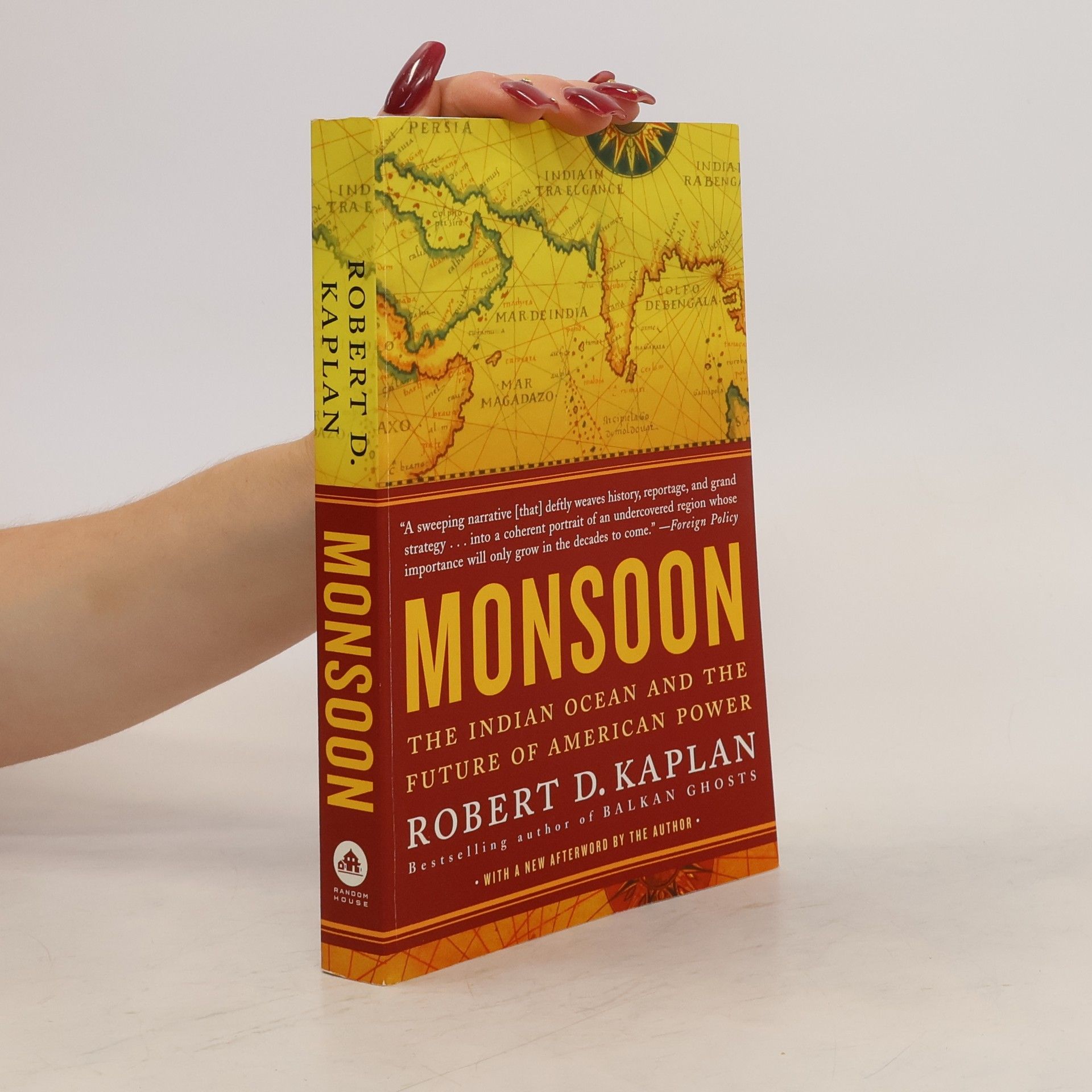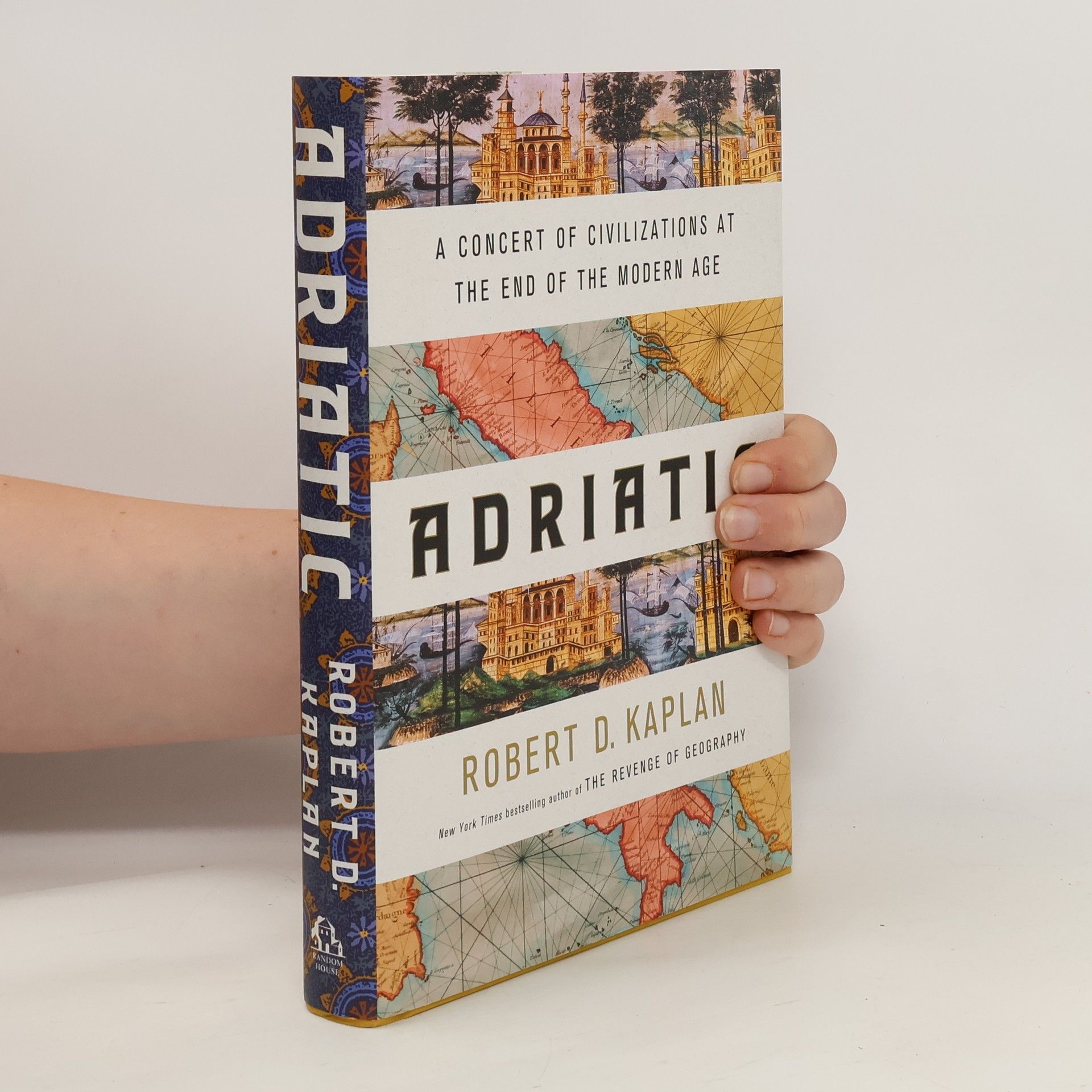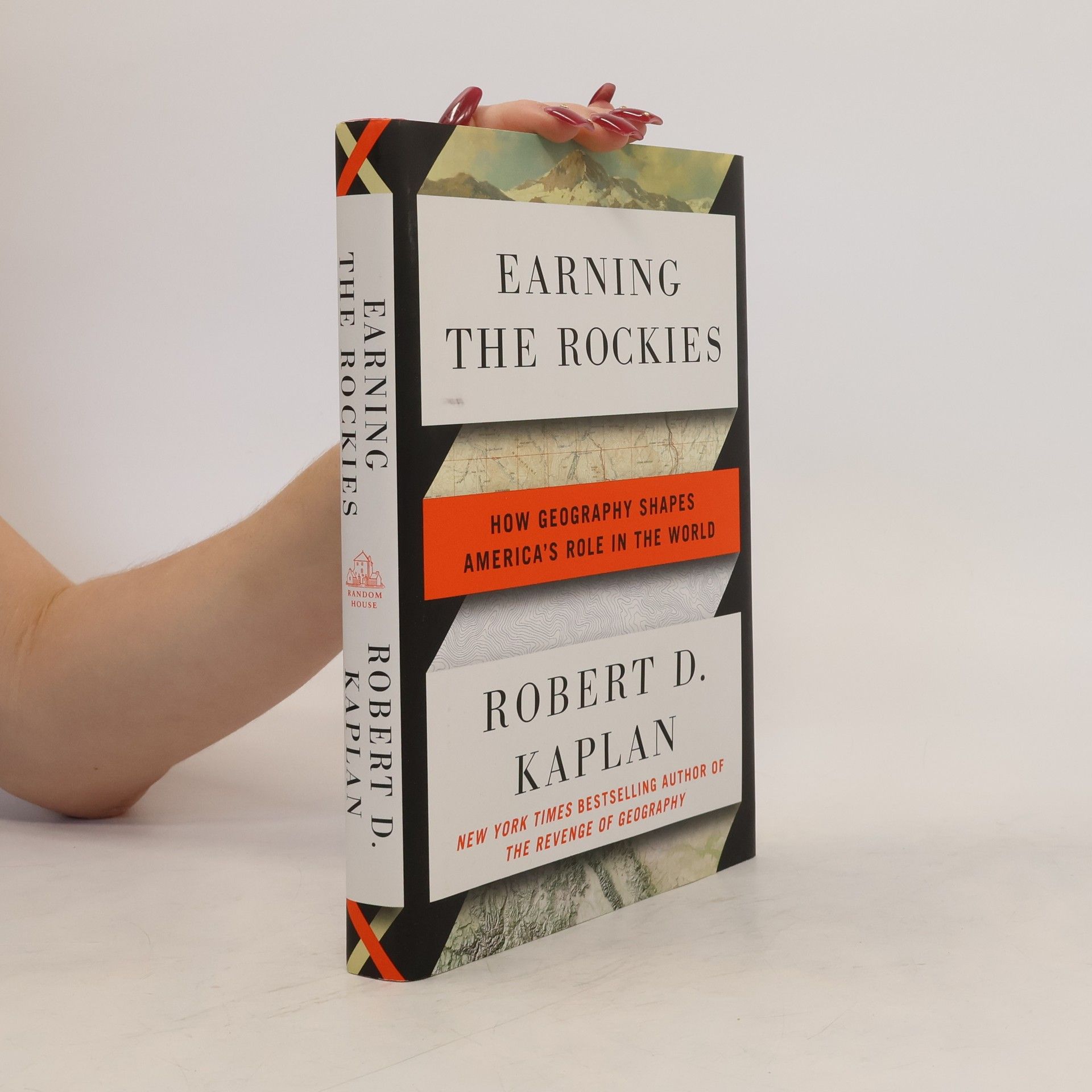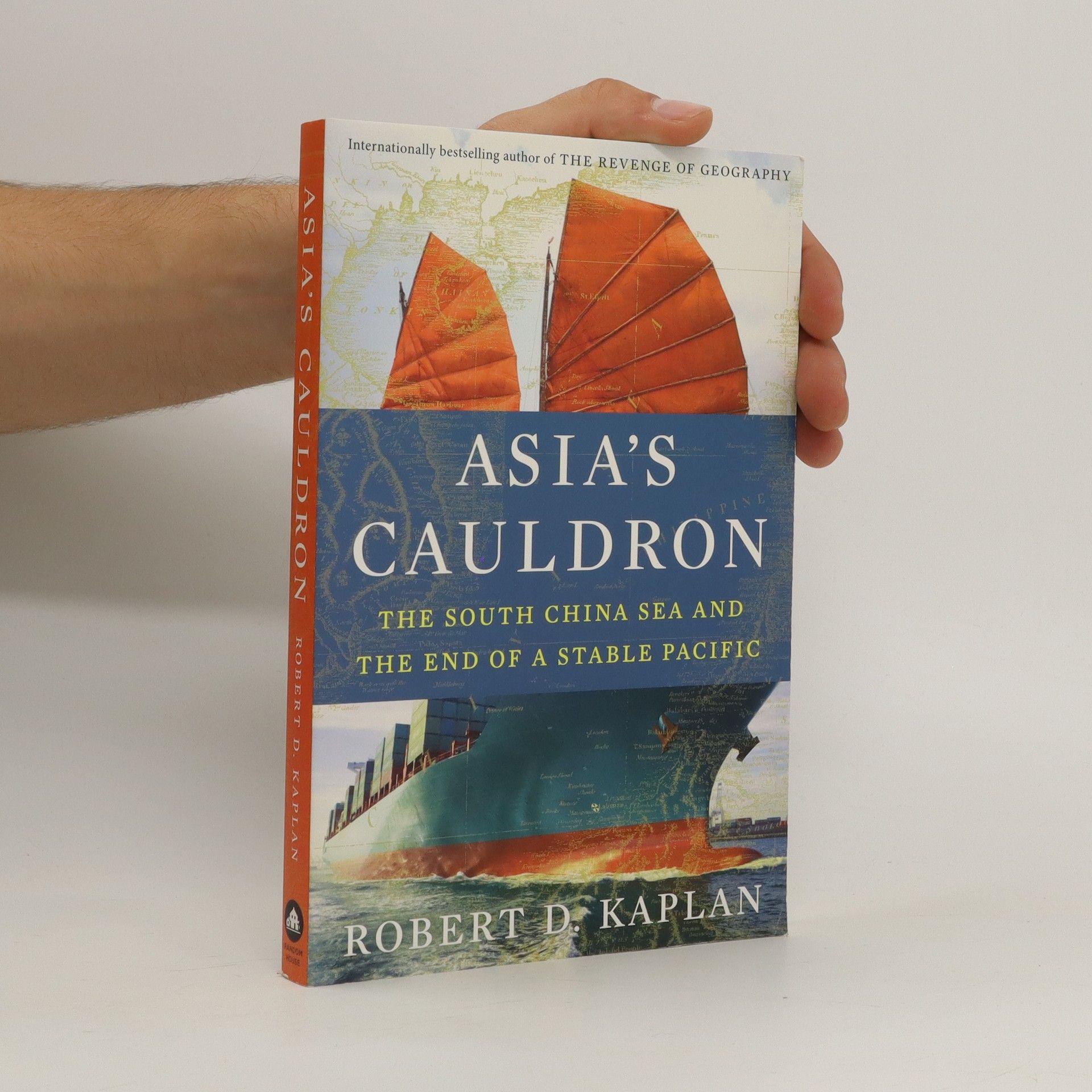The book delves into the pressing issues of a world facing perpetual crises, highlighting how localized disasters can escalate into global conflicts. Drawing on historical lessons, it offers insights and strategies to prevent this escalating spiral of turmoil. The author, known for their bestselling work, provides a timely analysis that emphasizes the importance of understanding geopolitical dynamics in addressing contemporary challenges.
Robert D. Kaplan Book order (chronological)
Robert David Kaplan is an American journalist whose work delves into global relations and geopolitics. A frequent theme in his writing is the reemergence of cultural and historical tensions, temporarily suspended during the Cold War. Kaplan's analyses explore the dynamics of power and their impact on world affairs, with his provocative essays sparking debate in academia and government. His work offers profound insights into the intricate interplay of history, culture, and international politics.







The Greater Middle East, spanning from the Mediterranean to China, has long been a crossroads of empires, including Macedonian, Mongol, Ottoman, Russian, and British. However, the dissolution of these empires in the twentieth century has left postcolonial states grappling with instability due to power struggles, leadership vacuums, and arbitrary borders set by departing imperial powers, often disregarding local geography and political realities. In this exploration, Robert Kaplan delves into the region's complex history to uncover how past events shape contemporary issues and how the pursuit of stability frequently clashes with democratic ideals. Kaplan advocates for a realistic approach to understanding the Greater Middle East, highlighting the failures of Western democracy promotion and the emergence of a new economic imperialism, particularly as China's ambitions position it as a crucial link between Europe and East Asia. The Greater Middle East remains a battleground for future great power conflicts, with centuries of imperial influence continuing to affect current political dynamics.
A moving meditation on recent geopolitical crises, viewed through the lens of ancient and modern tragedy "Spare, elegant and poignant. . . . If there is a single contemporary book that should be pressed into the hands of those who decide issues of war and peace, this is it."--John Gray, New Statesman "It is tragic that Robert D. Kaplan's luminous The Tragic Mind is so urgently needed."--George F. Will Some books emerge from a lifetime of hard-won knowledge. Robert D. Kaplan has learned, from a career spent reporting on wars, revolutions, and international politics in Europe, the Middle East, and East Asia, that the essence of geopolitics is tragedy. In The Tragic Mind, he employs the works of ancient Greek dramatists, Shakespeare, German philosophers, and the modern classics to explore the central subjects of international politics: order, disorder, rebellion, ambition, loyalty to family and state, violence, and the mistakes of power. The great dilemmas of international politics, he argues, are not posed by good versus evil--a clear and easy choice--but by contests of good versus good, where the choices are often searing, incompatible, and fraught with consequences. A deeply learned and deeply felt meditation on the importance of lived experience in conducting international relations, this is a book for everyone who wants a profound understanding of the tragic politics of our time.
Adriatic
- 352 pages
- 13 hours of reading
In this insightful travelogue, geopolitical expert Robert Kaplan explores the Adriatic Sea, a historical crossroads of trade, culture, and ideas. His journey through Italy and the Balkan nations reveals a deeper narrative than the typical news stories of populism and the refugee crisis suggest. Kaplan argues that the rise of populism is a mere symptom of the waning age of nationalism, indicating that Europe's future is moving in a new direction. As he travels from Italy to Slovenia, Croatia, Montenegro, Albania, and Greece, he offers sharp cultural criticism and a comprehensive study of Europe through these nations. He uncovers historical clues about the continent's future while reflecting on contemporary issues such as the refugee crisis, resurgent nationalism, and competition for fossil fuel resources. Kaplan emphasizes that the Adriatic is poised to reclaim its status as a global trading hub, particularly as it becomes linked to China's Belt and Road initiative. Through a blend of history, literature, art, architecture, and current events, complemented by a map and photographs, he illustrates how the Adriatic's geography encapsulates Europe, providing valuable insights into the continent's destiny.
"The Good American is a story about courage, intense loneliness, and the State Department's golden age during the late Cold War and post-Cold War. It is also a celebration of ground level reporting and getting a worm's eye view of crisis zones. Robert Gersony, a high-school dropout later awarded a bronze star in Vietnam, spent over four decades on the ground in virtually every war and natural disaster zone in the world. Interviewing hundreds of refugees and displaced persons in each place to assess humanitarian crises, Gersony's research and thorough reports had an immense, underappreciated impact on US foreign policy across the globe. In every case, his recommendations made it smarter and more humane, often dramatically so. In his career as a journalist, Robert D. Kaplan often crossed paths with Gersony while covering the "hot" moments of the Cold War and its aftermath. Even as a biography, this is Kaplan's most personal book to date, and through Gersony's story, he makes a poignant case for how American diplomacy should be conducted--with a clear eye toward facts on the ground--at a time when diplomacy is too often being left behind."-- Provided by publisher
Earning the Rockies
- 201 pages
- 8 hours of reading
Robert D. Kaplan lays bare the roots of American greatness by examining the geography from which our power springs - showing how westward expansion shaped our national character, and how it should shape our foreign policy
Kniha představuje svébytnou meditaci na téma Spojené státy a jejich role ve světě. Autor se na základě vzpomínek na otce, který u něj pravidelnými výlety na historická místa probudil lásku k historii Ameriky, vydává na „roadtrip“ napříč Spojenými státy z Východu na Západ. Při této jízdě je veden úvahami různých autorů o Americe, zejména pak postřehy Bernarda DeVota, jenž si byl vědom, jak mocně geografie zasahuje a ovlivňuje roli USA ve světě. Nejprve cestuje zalesněnou „vertikální“ krajinou východu, pokračuje horizontální krajinou prérií, aby nakonec stanul na břehu Pacifiku a mohl se zabývat postavením své vlasti ve světě. V průběhu celé cesty si autor zaznamenával zajímavé myšlenky o minulosti i současnosti Spojených států a jejich obyvatel, které pro českého čtenáře mohou být někdy značně provokativní, nicméně nutí k zamyšlení a představují sondu do americké duše.
In Europe's Shadow
Two Cold Wars and a Thirty-Year Journey Through Romania and Beyond
- 336 pages
- 12 hours of reading
From bestselling author Robert D. Kaplan, a prominent global thinker, comes a compelling exploration of Romania, a pivotal yet often overlooked European country. Kaplan's journey began in the 1970s when he first visited Romania, then a bleak Communist state. This experience sparked a lifelong fascination with a nation crucial to understanding Russia's current threats to Europe. The narrative interweaves memoir, travelogue, journalism, and history, chronicling Kaplan's evolution as a journalist alongside Romania's own struggles. Through Romania's story, Kaplan delves into broader themes of geography, imperialism, and the impact of historical events like the Cold War and the Holocaust. He paints a vivid picture of the country, from the grim realities of life under Nicolae Ceaușescu to the cultural richness of Transylvania. His reflections engage with historical thinkers and contemporary Romanians—philosophers, priests, and politicians—who strive to uphold humanism amid a resurgent Russia. Returning to Romania in 2013 and 2014, Kaplan observes a transformed landscape, now a destination shaped by Western influences while still grappling with its past. This work serves as an essential lens through which to comprehend the ongoing crisis involving Russia and the complexities within Europe itself.
"An examination of the future role of the South China sea in international relations and a tour of the the nations surrounding the South China Sea and their interests in the region. In exploring each of these countries individually, Kaplan clearly shows where the conflicts may arise and why they will be challenging for the international community"--





